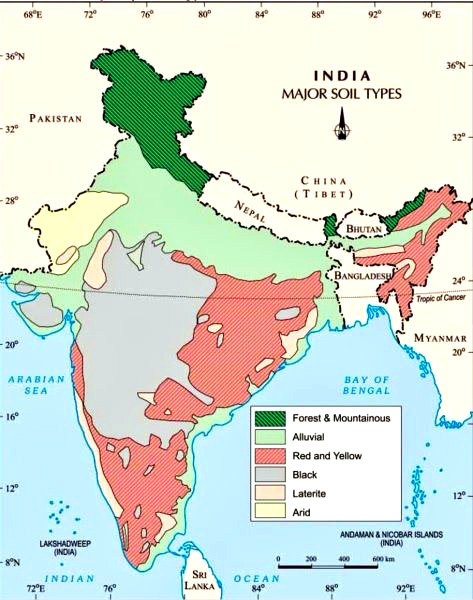King Bhumibol World Soil Day - 2020 Award | 11 Mar 2021
Why in News
The Indian Council of Agricultural Research (ICAR) received the prestigious International “King Bhumibol World Soil Day - 2020 Award” conferred by the Food and Agriculture Organization (FAO), Rome.
- The award was announced on the eve of World Soil Day - 2020 (5th December 2020) in view of the ICAR’s excellent contributions in “Soil Health Awareness” on the theme “Stop soil erosion, save our future” (2019 theme).
Key Points
- About King Bhumibol World Soil Day Award:
- Launched in 2018, the King Bhumibol World Soil Day Award acknowledges individuals or institutions that raise public awareness of soils by organising successful and influential World Soil Day celebrations.
- The award, sponsored by the Kingdom of Thailand, is named after King Bhumibol Adulyadej of Thailand for his lifelong commitment to raising awareness of the importance of sustainable soil management and rehabilitation for food security, poverty alleviation and more.
- The former winners of the Award include Practical Action in Bangladesh in 2018 and the Costa Rican Soil Science Society (AACS) in 2019.
- Indian Council of Agricultural Research (ICAR):
- It is an autonomous organisation under the Department of Agricultural Research and Education (DARE), Ministry of Agriculture and Farmers Welfare.
- It was established on 16th July 1929 and was formerly known as the Imperial Council of Agricultural Research.
- It is headquartered at New Delhi.
- ICAR is the organisation responsible for the coordination, guidance and management of agricultural research and education in India.
- In this capacity, ICAR oversees one of the largest networks of agricultural research and education institutes in the world, covering the whole country in the fields of horticulture, soil science, fisheries and animal sciences among others.
- Soil Degradation:
- Soil degradation is the physical, chemical and biological decline in soil condition caused by its improper use or poor management, usually for agricultural, industrial or urban purposes.
- It can be the loss of organic matter, decline in soil fertility, and structural condition, erosion, adverse changes in salinity, acidity or alkalinity, and the effects of toxic chemicals, pollutants or excessive flooding.
- The soil degradation is caused by excessive pressure on land to meet the competing demands of the growing population for food, fodder and fibre.
- These processes, in turn, reduce agricultural productivity leading to social insecurity.
- Emission of greenhouse gases to the atmosphere resulting in climate change and global warming could be the major reason for soil degradation.
- Various human activities, such as the introduction of large scale irrigation canals and faulty land use lead to accelerated soil degradation through salinization, flooding, drought, erosion and waterlogging.
- The other causes of degradation due to direct/indirect human interventions are:
- Deforestation and removal of natural vegetation
- Overgrazing
- Agriculture-related activities
- Over exploitation of the vegetation for domestic purpose
- Soil degradation is the physical, chemical and biological decline in soil condition caused by its improper use or poor management, usually for agricultural, industrial or urban purposes.
Glinka World Soil Prize
- It is also conferred by FAO in line with soil. It is an annual award for dynamic change-makers dedicated to solving one of our world’s most pressing environmental issues, i.e. soil degradation.
- It honours individuals and organizations whose leadership and activities have contributed, or are still contributing to the promotion of sustainable soil management and the protection of soil resources.

